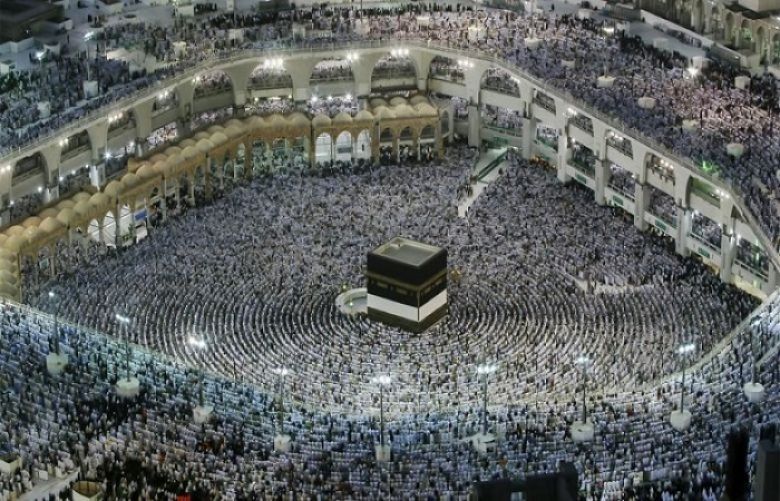More than two million Muslims began the annual Hajj on Friday.
According to official statistics issued by Saudi General Directorate of Passports, 1.604 million pilgrims arrived in Saudi Arabia for Hajj, an increase of eight per cent or 117,000 pilgrims compared to the same period in 2018.
In Makkah and other holy sites, the Saline Water Conversion Corporation, SWCC, aims to achieve a new record in 2019, by supplying one million cubic metres of potable water per day during the Hajj season, an increase of 10 per cent compared to 2018.
In Mina, an area of eight-square kilometres has been allocated to some 45,000 tents, to provide accommodation for 1.5 million pilgrims.
The area can host 118,000 people per hour and accommodate 70,000 worshipers.
Some 141,800 pilgrims who arrived on 355 flights also benefited from the Makkah Route initiative — a service launched by the Kingdom that includes issuing visas, ensuring compliance with health requirements, and codifying and sorting luggage at airports in the pilgrims’ own countries.
"All of the arms of state have been deployed (and) we are proud to serve as 'God's hosts'," said security forces spokesman Bassam Attia.
In total some 2.5 million faithful, the majority from abroad, will undertake the pilgrimage this year, according to local media.
"More than 1.8 million visas were delivered online without the need for middlemen. It's a success," said Hajj ministry official Hatim bin Hassan Qadi.
"We feel cleansed by achieving this pillar of Islam and meeting people from across the world. It's marvellous," said Mohamed Jaafar, a 40-year-old Egyptian pilgrim.
'An indescribable feeling'
"It's an indescribable feeling. You have to live it to understand it," said an Algerian in his fifties completing the pilgrimage for the first time.
"It's a golden opportunity and moment," said his female companion.
Mecca, built in a desert valley, is home to the Kaaba, a cube structure that is the focal point of Islam and draped in a gold-embroidered black cloth.
Muslims around the world pray towards the Kaaba, which is located in the Grand Mosque, and pilgrims walk around it seven times.
Worshippers will participate in weekly prayers late on Friday morning.
During the pilgrimage, separate streams of men and women, grouped by nationality, will travel to Mina on foot or in buses provided by the authorities.
A district of Mecca, Mina sits in a narrow valley surrounded by rocky mountains and is transformed each year into a vast encampment for pilgrims.
A total of "350,000 air-conditioned tents have been pitched," said a Saudi official.
Worshippers will climb Mount Arafat, also known as the "Mount of Mercy", for hours of prayers and Koran recitals.
After descending, they will gather pebbles and perform the symbolic "stoning of the devil".
That marks the beginning of Eid-ul-Azha, the festival of sacrifice, marked on Sunday.
Pilgrims then return to the Grand Mosque to perform a final "tawaf" or walk around the Kaaba.
The scale of the pilgrimage presents vast security and logistical challenges, with tens of thousands of safety officers deployed.
The Hajj, one of the world's largest religious gatherings, is one of Islam's five pillars and must be undertaken by all Muslims with the means at least once in their lives.







